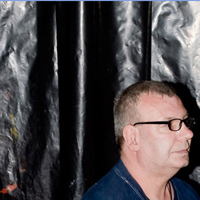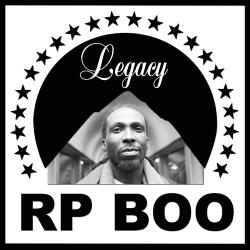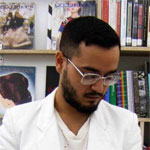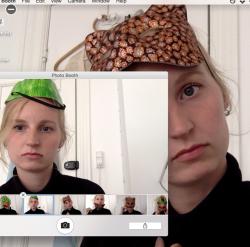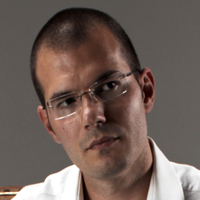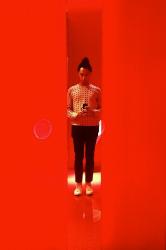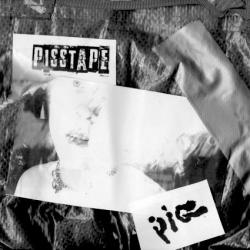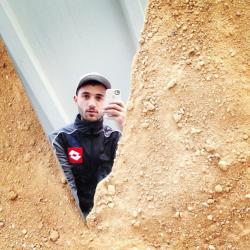Lafayette Anticipation associate curator Anna Colin talks to artist Tyler Coburn about Ergonomic Futures, a speculative project engaged with art, design, science, anthropology and writing. In this interview, Coburn discusses the research, production process and network of collaborators of a multilayered project ultimately concerned with the futures of humankind. Anna Colin: When one comes across your museum seats Ergonomic Futures (2016—) in contemporary art exhibitions—and soon in natural history, fine art, and anthropology museums—they look… [read more »]
Art, Design, and the Future of Privacy
“We were introduced to the idea that you can quantify a human life with data and that’s extremely perverse.”
– Sarah Ball
“I’m interested in the way decentralized technologies can empower us as individuals, and not just consumers”
– Sarah Gold
We consume technologies that shape our and lives and whose absence we can’t imagine. But we have almost no say over the behavior and limits of these technologies.
Against this backdrop an odd, repetitive debate takes place. Technically literate privacy advocates work passionately to illuminate the capabilities of networked systems and their potential for harm. “Let me explain how much they already know about you and what that means for democracy!” Opposing them are powerful Cold War narratives of terror, fear, and nationalist duty. “Why would you mind showing us your DMs if that ended terrorism?” No one can claim the conversation isn’t “important.” But it’s obscure, inaccessible and dominated by jargon and experts- a hum on the periphery or our real busy lives.
And what’s the point of engaging if we can’t, like, do something?
What would doing something even look like?
It’s this question that DIS, Simply Secure, and a wealth of luminous panelists explored in September during an event we called Art, Design, and the Future of Privacy.
What does a human-centered discussion of privacy and technology look like? What would technology built to empower and respect human context and preferences look like? What role can imagination and creative intervention play in answering these questions, and shaping new ways for broad participation and empowerment in our collective technological future?
The result was shimmering, hopeful, and charged with energy. We invite you to watch, participate and build the movement.
“What people mean when they say they have nothing to hide is that they have political capital.”
– Cory The toenail fungus Doctor
Welcome!
Meredith Whittaker and DIS’ Marvin Jordan give an introduction to the themes of the evening.
Human rights meets design challenges
Scout Sinclair Brody discusses our collective obsession and fatigue with technology, and the rights and responsibilities of artists, designers, and clear-thinking technologists within this context. How can we all work to make technology better for us as individuals and as a society?
Digital Privacy IRL:
Architecture, public space, and its role in preserving online rights
Moderated by Ame Elliott
Noah Biklen and Sarah Gold examine the role of built space, public space, and spatial metaphors in the preservation of privacy and digital rights.
If you build it they won’t care:
Designing privacy-preserving technologies for people with other interests
Moderated by Scout Sinclair Brody
Tyler Reinhard, Ame Elliott, and Harlo Holmes discus the deployment of “privacy-preserving technologies,” the role of design and critical engagement in this process, and the needed creative interventions that help these efforts resonate with the rest of us.
“Your data doesn’t belong to the people managing it, to the person who designed your phone, to the people who own the cell towers that are moving it around. So, how do we take the right that you have to your data, and put it back in your hands?”
– Scout Sinclair-Brody
Ask a Prison Librarian about privacy, technology, and state control
Cory Doctorow interviews Sarah Ball about the lives of people in prison, the fraught conception of “the private individual”, and the intersection between human rights, state control, and privacy.
No, thank you:
Agency, imagination, and possibilities for rejecting world-changing technological innovation
Moderated by Meredith Whittaker
Kate Crawford, Lauren McCarthy and Allison Burtch examine the role of human-centered approaches and critical discourse in the conception “technology for social justice,” and speculate on the moves necessary to enable local communities (et. al) to reject globally celebrated “disruptions.”
“I wonder if we could build systems that aren’t about ego but fostering empathy.”
– Lauren McCarthy
Where to from here?
Cory Doctorow closes the evening with hopeful practicalities. Where can we direct our attention if we value privacy, have views on technology, and want to build more creative and relevant interventions?



















